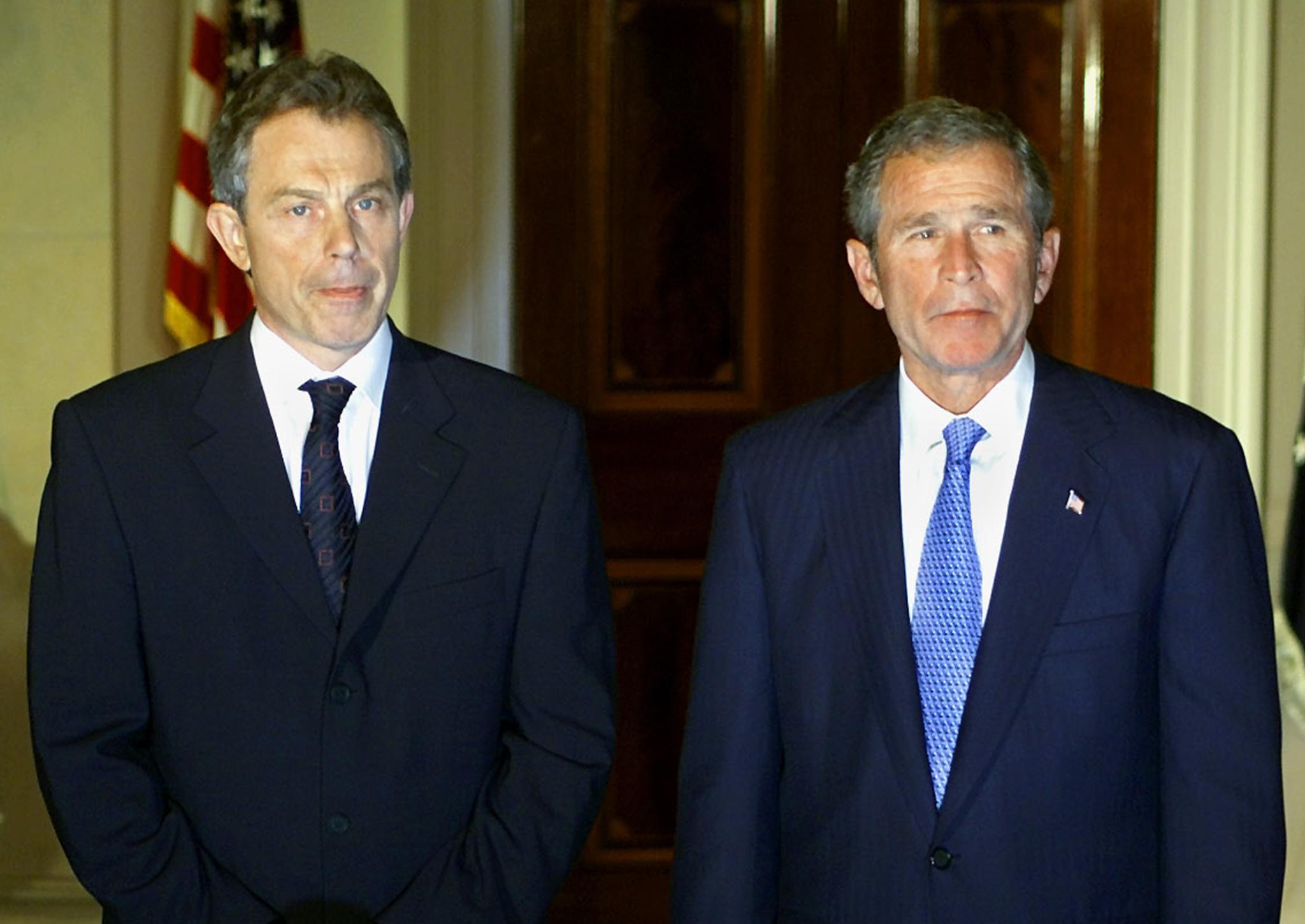Another 250 people were slaughtered in Baghdad last weekend. No wonder Iraqis don't care about the Chilcot report
The Chilcot report is an opportunity for Brits to think that the state is actually doing something of worth, after reducing large parts of what was an advanced and highly educated Arab nation to a smouldering slag heap

Your support helps us to tell the story
From reproductive rights to climate change to Big Tech, The Independent is on the ground when the story is developing. Whether it's investigating the financials of Elon Musk's pro-Trump PAC or producing our latest documentary, 'The A Word', which shines a light on the American women fighting for reproductive rights, we know how important it is to parse out the facts from the messaging.
At such a critical moment in US history, we need reporters on the ground. Your donation allows us to keep sending journalists to speak to both sides of the story.
The Independent is trusted by Americans across the entire political spectrum. And unlike many other quality news outlets, we choose not to lock Americans out of our reporting and analysis with paywalls. We believe quality journalism should be available to everyone, paid for by those who can afford it.
Your support makes all the difference.Perhaps one of most nauseating spectacles of the 21st century was aired on television in 1996. US Ambassador to the UN, Madeleine Albright – who’s now endorsing long-time friend Hillary Clinton’s presidential bid – had been asked if she thought the manufactured infanticide of half a million Iraqi children by unrelenting US-UK sanctions was worth the price of showing Saddam Hussein who’s boss.
She replied “We think it’s worth it.” I like to think that if Albright’s conviction contained at least a vestige of uncertainty, she would have long been consumed by a debilitating regret for her part in the unmaking of modern Mesopotamia – but I wouldn’t hold my breath. Albright’s attitude is an ugly reflection of the general sentiment toward post-2003 Iraq: abandonment and indifference.
Britain’s unabashed obsession with the findings of Sir John Chilcot is a much milder symptom of its own indifference. Thanks to the The Report of the Iraq Inquiry we have enjoyed being able to spirit away the nasty thoughts about our state’s definitive war guilt until “official” conclusions are reached. Now that time has come, and Britain is bracing itself for what is sure to be an anti-climactic report.
Here is what the post-Chilcot political planet will look like: neither Blair nor Jack Straw will answer at the dock of the Hague, Iraq will continue to burn, and the names of the dead will remain imprisoned in that ghastly wooden term “collateral damage”. An Iraqi friend of mine once conveyed her ironic mirth by saying that: “Most of us don’t even know or care about the Chilcot report, our situation is far beyond that now, anyway.”
While I don’t wish to condemn the enterprise wholesale – no doubt it’ll make good once reduced to a resource for future academic endeavour – any hope that, after so long, the Chilcot report will rectify political wrongs is a claim that strains the most gullible credulity. The report and the week of circular television discussions that are likely to ensue, are opportunities for Brits to think that the state is actually doing something of worth, after reducing large parts of what was an advanced and highly educated Arab nation to a smouldering slag heap.
Try telling the Iraqis fighting for their lives against the surrogates of Al-Qaeda theocracy that the Chilcot report will be worth the paper that it’s written on. Just this week, 250 people were murdered and 225 injured by the merchants of suicide terror. The myth promulgated by the neoconservatives and New Labour sycophants that Iraq was an Al-Qaeda haven pre-invasion is proven to be exactly that when one discovers the following. Before 2003 there had been no recorded suicide bombings in Iraq’s history – although it is possible that Saddam covered some up to appear “in control”. Since 2003, there have been 1,892 attacks culminating in the wholesale massacre of almost 20,000 people.
Iraq’s slow implosion – its internecine sectarianism, failed institutions, and the onslaught of Isis – was made possible by the enterprise of brigandage launched against it by the US-UK “coalition of the willing”. The generation old containment of the country’s ethno-religious fault lines was cancelled out by the bungled rushing through of a badly written and ahistorical constitution. Iran was able to appeal to the Shiite majority as a noble patron, and folds of the Sunni minority have receded into fortification. All of these divisions have made it a pleasure for Isis to thrive.
The foregoing should not be conflated with an endorsement for the continued rein of the Hussein dynasty. The forced abdication of Saddam and his criminal sons was a sufficient condition for Iraqi emancipation. This is simply an invitation for you to ruminate over the significance of the Chilcot report, and to remember that while we go on chewing the cud, Iraq, as it always has, continues to fight for its life.
Join our commenting forum
Join thought-provoking conversations, follow other Independent readers and see their replies
Comments